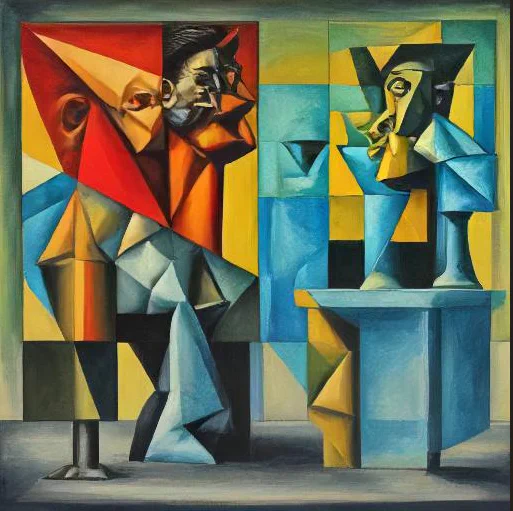The Politics of Exclusion: Schmitt and Agamben Revisited
 Image credit: Harrison Youn
Image credit: Harrison Youn
In 1927, Carl Schmitt’s book Der Begriff des Politischen (The Concept of the Political) reverberated through the German academic landscape, challenging conventional thought. Schmitt sought to legitimize dictatorial power by isolating “the political” as an autonomous domain. His theory posited that religious, moral, economic, racial, and other antagonisms could escalate into a binary political opposition: “friend versus enemy.” This stark division, he argued, emerges when the diverse interests of social groups fracture the state into this dichotomy. To unify the internal populace as “friends,” Schmitt deemed an extralegal dictator necessary-someone who could designate an external “enemy.” This dynamic remains strikingly relevant today. In South Korea, for example, the North Korean regime often serves as a perpetual enemy, consolidating state power and uniting the people. Citizens who dissent risk being branded as traitors, aligned with the enemy.
Schmitt asserted that the state is the most “political” of all institutions, which implies that every state must identify at least one adversarial state to sustain itself. Without an enemy, Schmitt contended, the very existence of the state is impossible. Politics cannot exist without enmity, and the notion of a world state encompassing all humanity is merely an illusion. As Schmitt famously stated, “The political world is a plurality, not a singularity.” On the eve of Nazism and World Wars, he argued that the state, in any form, nourishes itself on antagonism and conflict. While it is essential to critically engage with Schmitt’s insights to prevent state oppression and inter-state wars, our present reality remains deeply entrenched in political divisions.
Contemporary philosopher Giorgio Agamben, drawing from the political philosophies of Michel Foucault and Walter Benjamin, sought to redefine “the political” by introducing new categories that transcend Schmitt’s “friend versus enemy” dichotomy. Agamben presents the paired concepts of “bare life (nuda vida)” and “political existence,” “zoe” and “bios,” and “exclusion” and “inclusion.” Unlike Schmitt’s categories, which are defined between people, Agamben’s political categories are delineated within the individual. “Bare life” represents the aspect of a person that lacks political protection, while “political existence” encompasses the rights and duties granted by the political community. In ancient Greece, those excluded from the political community were labeled “zoe,” while those included were known as “bios.” The key here is the fear harbored by “bios”: the awareness that failure to fulfill their political obligations could reduce them to “zoe,” or bare life. Agamben highlights this “inclusive exclusion” relationship.
Agamben’s categories delve deeper into the essence of “the political” than Schmitt’s friend-enemy logic. Even those classified as friends, or bios, live in constant anxiety, fearing that they could at any moment revert to bare life. This anxiety drives individuals to monitor and suppress the forces of bare life within themselves-a form of self-surveillance or self-censorship imposed by power. Much like workers who fear being fired or individuals who bully others to avoid social exclusion, this is the “inclusive exclusion” relationship Agamben describes.
In Homo Sacer, Agamben notes that while in ancient democracy, bare lives were external and could be killed, modern democracy ostensibly incorporates bare lives within the system. Though modern democracy claims to protect the human rights of immigrants, women, and others, Agamben reveals the precarious nature of these rights. Immigrants may be accepted as members of an exclusive community, and women may be recognized as equal within a patriarchal system, but these rights are system-defined and can be revoked at any time. The ideology of equality in modern society was achieved through the relentless struggle of bare lives. Unfortunately, today, this struggle often manifests as “voluntary submission” to the very power that once rendered them bare lives.
The antagonistic relationship once drawn between external bare life and internal political existence in ancient democracy reemerges in modern democracy, though in a different form. The conflict has shifted inward, within the individual, between bare life and political existence. The modern subject is thus shaped by the continuous effort to censor oneself, to avoid becoming bare life. With the fear of bare life deeply ingrained, it is perhaps unsurprising that Schmitt’s friend-enemy dichotomy remains so effective in modern society. Yet, if we cannot overcome this internal fear, can we ever confidently assert ourselves as subjects of power, or embrace the life force that emanates from bare life itself?